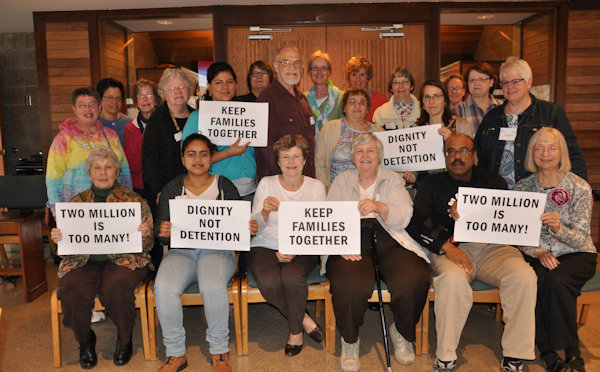Southeastern Michigan JFON comes to the rescue to bring an infant daughter to America.
As an interpreter for the U.S. forces in Afghanistan, Nazim took precautions to shield his wife and two young children from the violence he encountered on an almost daily basis from the Taliban. He knew he had an important job to do and he wanted to help his country.
The threats and attacks increased, however, and not just against Nazim at work. His home and family became targets, too. Fearing for their lives, Nazim applied for the Special Immigrant Visa available to Afghans and Iraqis who provide crucial aid to the U.S. Armed Forces.
These visas take several months to process; in the interim Nazim’s wife became pregnant again. Soon the family welcomed a baby daughter and named her Lina. They received permission to

emigrate to the U.S. just as the Taliban made the family’s continued existence in Afghanistan untenable. It was a matter of life or death. They had to get out, and they had to get out now.
However, they faced a heart-wrenching decision. They would not be able to take their infant daughter with them. In the end, they had to leave Lina behind in the care of her uncle and grandmother, vowing to return for her as soon as possible.
Once in the United States, a frantic Nazim and his wife immediately began the process to bring Lina over to join them in their new home in southern Michigan. Unfortunately, they first met with an accredited representative (not an attorney) who filed forms that created unnecessary red tape and delays. Weeks turned into months, and months became a year.
Lina was busily passing the milestones of her young life—sitting up, crawling, walking, babbling her first words—and her parents were missing all of them.
Worse yet, her uncle and grandmother were now in the Taliban’s sights as the closest relatives of Nazim, the “traitor.” They were forced to move for their own—and Lina’s—safety.
The First United Methodist Church of Blissfield, Michigan became involved in the case, and directed the family to JFON Southeastern Michigan. Their file landed on the desk of volunteer immigration attorney Virginia Norkevicius.

An immigration attorney with a private law firm, Virginia has twenty years of experience in immigration law. She also has close ties to JFON as a former employee and longtime volunteer. She now dedicates one day a week to JFON clients.
Virginia was surprised by the tangle of Lina’s case and the precious time that had been wasted. But she was also excited by the task set before her.
“I knew what to do,” she says cheerfully. “I’ve handled this kind of case in the past.”
Virginia contacted the embassy in Kabul, and began the process again, this time filing the correct paperwork. Because they had left Lina behind, both parents and child had to undergo DNA testing to prove their relationship to each other.
Meanwhile, the church started a GoFundMe campaign to send Lina’s mom back to Afghanistan to visit her daughter. Lina had her interview at the U.S. Embassy in Kabul in June. She was approved several months later.
“I cried when we got the word,” admits Virginia. “To bring families together is a wonderful thing.”
Lina finally arrived in Michigan on November 7, 2016, after being separated from her siblings for more than two years. All of them have a lot of catching up to do.
Nazim, profoundly moved by the care and expertise his JFON attorneys gave to Lina’s case, came by a JFON clinic to express his gratitude to the entire JFON SEMI staff.
“Thank you,” he said, his eyes brimming with unshed tears. “Thank you from all of my family. Thank you for bringing Lina home.”
~This feature reported on the National Justice For Our Neighbors News site. JFON grew out of the United Methodist Committee on Relief’s long commitment to refugees and immigrants. JFON SEMI part of a network of 35 clinics that serve more than 3,500 clients annually.
Last Updated on December 12, 2016

